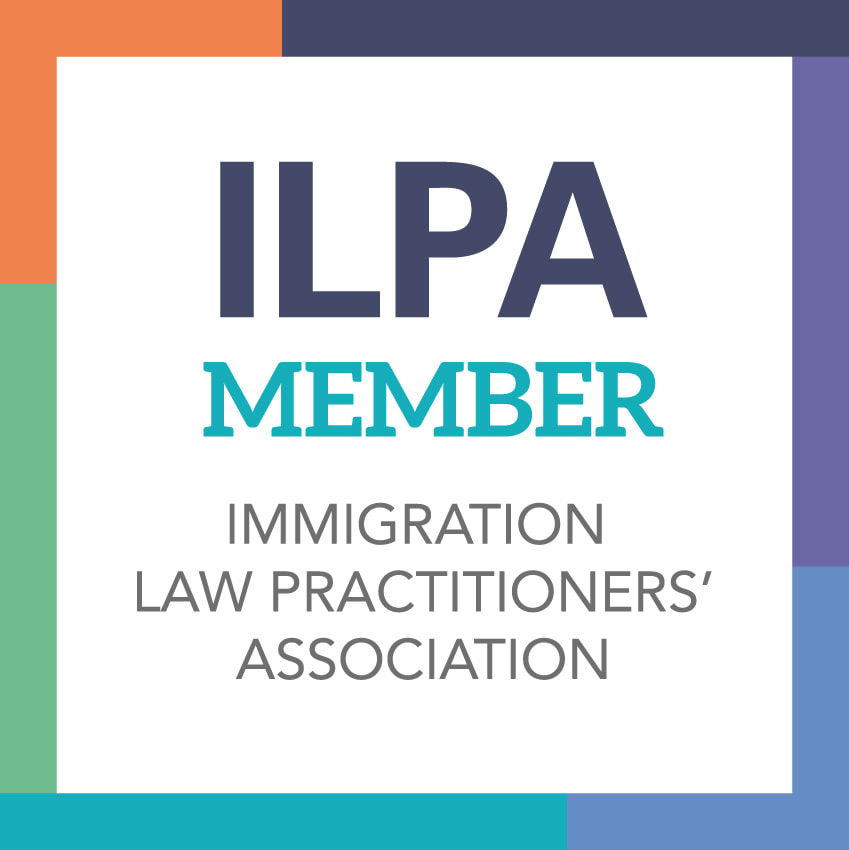|
Today saw the publication of further information about the Government's long awaited and much lobbied for reintroduction of Post Study Work. Few working in UK international education will have missed the excitement, even relief, with which the initial announcement was met from within the sector and beyond. As someone who has spent a working life in visa advice settings, many in and around higher education - including, indeed, a stint on a government working group on post study work - I was also more than delighted to see its return. UK PLC's offering in the global market place of education has been reduced through the lack of meaningful post study work opportunities, not even as a means to settle, but merely as a way to contextualise a qualification with graduate work exposure or building the international links, partnerships and soft-power connections and reciprocities with which those well-versed in the returns of the international higher education space are familiar. From this point of view alone, it is much needed. Yet at the same time as being pleased at the return of PSW and the opportunities that this will bring people to genuinely contextualise their degree with work experience or to embark on a career in the UK and retain much needed international perspectives and talent at a time when the country's more globalist credentials are in question, a level of healthy realism is required. Post Study Work - The Wilderness YearsDuring this hiatus, competitor countries intelligently evolved their migration systems to include ever more facilitative and sophisticated types of graduate visas. The most 'generous' examples fast-tracked graduates to permanent residence while simultaneously seeking to address both regional demographic and skills shortages. These schemes will inevitably have their own shortcomings and critics, but the best are designed to be flexible enough to recognise the value not only of higher education, but also vocational and further education, too. They are not just managed migration, but smart migration: policy making which carries defined, responsive and clearly set-out benefits and objectives of migration routes to both those who apply and obtain the status, but also to the locality. It is also true to say that the UK was also not entirely without post-study options in some shape or other. Honourable mentions should be given to Tier 4 (Doctorate Extension Scheme) - the one year visa for PhD graduates - as well as Tier 1 (Graduate Entrepreneur) and its successor Start Up visa which allows up to 2 years residence for graduates to develop a business idea in the UK. The more ethereal option of Tier 1 (Exceptional Promise) also offers something for those who show a particularly high level of potential in Arts, Science and Tech and who could secure international acclaim from leaders in their field - perhaps even those who have an Emmy, a Golden Globe or an Academy Award gathering dust on their mantlepiece. Graduate Work Visa: A Bridge, But To Where?For our part from April 2012 to now, the UK's post study offering was based in a range of technical concessions and exemptions within the Tier 2 rules. These at least removed some of the more universally challenging barriers to entry, such as the entry point salary level, the resident labour market test, the disincentive of the skills charge and whether an employer had to enter the lottery to issue a restricted certificate of sponsorship or not. The working group on Post Study Work recognised that the visa worked best as a bridge - enabling someone to move from graduation to graduate employment. The fact of the previous system and of this is - Post Study Work is not in and of itself, a secure destination but only a stepping stone. The catch in PSW will be how it interplays with the existing work routes. Tier 4 DES, for example, keeps the door open on these concessions. It is critical when the route finally launches, that this principle remains. It also feels essential to recognise that while PSW is making a welcome comeback, it's important to fairly manage the expectations of those who might invest in a UK education. Given the starting point in 2021, this may also include students from EU countries who choose to study in the UK post-Brexit. In the interests of an ethical approach to recruiting students from outside of the UK, counselling prospective students on the opportunities of Post Study Work, requires awarenss about its potential limitation and to inform of these at the start. This includes understanding the need to prepare graduates to still seek out suitable, graduate level employment if it is their plan to stay beyond the initial 2 years... and certainly, it's not realistic at all to suppose that one can make back one's tuition fee investment by working for a couple of years after graduation! Beyond Graduate Work Visas: Tier 2 SponsorshipFrom April 2012 to now, despite concessions, the UK's post study offering held inherent disincentives such as unrealistic starting salaries which took little practical account of regional variations. It seamlessly blended these with complex processes for sponsorship and a general set of procedures that even relatively well resourced companies did not always fully understand. Add in that all-round, ever-present damoclean sense of foreboding and responsibility on the part of anyone who has managed a sponsor licence and you have the hostile environment's reimagining of a post study work offering. At the time of writing, there are just over 30,000 companies and organisations listed as Tier 2 employers on the UK Government sponsor licence list. Meanwhile, at the last full count in 2018, there were just over 5.7 million private businesses in the UK. While of course, there are a great many small outfits, freelancers, consultants and one-person operations and also a very large number of companies and organisations who would have little or no use of a Tier 2 licence at this time, it does seem a vanishingly small percentage - slighly more than just 0.05% of all private UK employers. This also does not factor in other employers, institutions and sectors, some of whom are in the licence list which would reduce that percentage even further. I am frequently surprised that even some well-known organisations do not operate a licence. In preparing for PSW, it feels an important message is that long-term, the success and meaningfulness of PSW still relies on employers of all sizes, engaging and understanding the opportunities of sponsorship. Without it, the pinch-point of struggling to find sponsored employment is simply deferred to the end of the PSW visa, rather than at the end of the Tier 4 visa, irrespective of whether there are concessions in place. By that time, people will have spent even more time and invested even more of themselves in the UK only to find that unreciprocated. With this in mind, it's important that in the overall messaging around PSW, institutions engage employer partners in awareness of the route and how it opens up opportunities of permit-fee employment for their graduates for a short period, while also encouraging those who do not have a sponsor licence to engage and understand that process: it seems the future remains inescapably points based and sponsored. The Long GameEven at this stage, PSW is still a set of proposals and it does seem worthwhile to consider that they are still open for discussion. How often is it that institutions have experienced the implementation of a new aspect of the immigration rules, only to find that they remain subject to further change later on? There are a number of aspects of the PSW proposals which would be interesting to pursue to ensure that the UK is offering a competitive visa. In short, these are: A Route to Return - this has been addressed in the current Tier 4 to Tier 2 concessions in allowing people to leave the UK and return using the same concessions. Previously, graduates had to move into Tier 2 before their visa expired and while they were in the UK. There are many reasons graduates need to return home - many personal, some financial, others simply practical. It seems important that a graduate's opportunity to engage with PSW does not expire with their Tier 4 visa or if they leave the UK. Previous routes have allowed graduates to return within 2 years of graduation - it would not seem impossible to consider this for PSW. Opening PSW to vocational education - when discussing post study work as part of the working group, we looked at the fact that college level qualifications were not included. Indeed, some FE and College leavers may indeed progress to degree level studies, but there is, at present, a range of skills shortages in the UK economy and around 60% of business believe these will worsen as a result of Brexit. Hospitality, IT, Construction, and Health Care are all sectors where there are gaps and shortages in labour. Should we not be making a case that some of these could be addressed by opening up PSW to Colleague leavers with skills in these areas? The occupation codes already exist in the rules at RQF4 and much like the shortage occupation list, a flexible approach to managing skills-based migration would dictate that these, too, could and should feature in PSW. A Route to Settlement - the group also considered that any PSW visa should count towards settlement. To come back to an earlier example, it is possible that a student could spend 4 years studying, 2 years on PSW but the time towards settlement would only really start once they moved into Tier 2, as the rules currently stand. It would make sense to press on this point - that where a Post Study Worker progresses on to employment, there is something there which recognises their first two years. There is an incentive there for firms to retain and attract talent while also encouraging graduates to look primarily for graduate level employment. And if that could be tied to a more realistic entry salary at the New Entrant level rather than the Experienced level, so much the better. PSW does not work in isolation: it's important to keep an eye on the bigger picture. Institutions and sector organisations should keep to to date with the wider proposed reforms and changes to sponsored work routes beyond PSW. There are opportunities to contribute to policy consultations - such as sending informed, practitioner participants to contribute to Migration Advisory Committee Consultations. There are even some right now on the salary levels for Tier 2 as well as what the future 'Australian Style Points Based System' should be like. In previous roles, we have circulated briefings on how to respond and done so as an organisation and as individuals. While PSW is making a welcome return, it is important to keep advocating to ensure it is a meaningful offering which addresses some of the issues of its previous incarnations. Getting Immigration Advice - Walkthruvisa LtdIf you are looking for experienced insight in shaping messages, services and approaches to potential students, agents and employer partners around Post Study Work and other post-study opportunities, get in touch at [email protected]Comments are closed.
|
Euan - EditorIt's often interesting how frequently patterns and themes emerge in the enquiries we receive at any given time. Archives
May 2021
Categories |
|
Walkthruvisa Ltd
Registered Office: 5 South Charlotte Street, EDINBURGH, EH2 4AN Regulated by the OISC | Ref: F201500995 Walkthruvisa Ltd is a registered limited company in Scotland | SC448707 Copyright © 2015-2024 Walkthruvisa Ltd. All rights reserved. Privacy Statement | Terms and Conditions |
|


 RSS Feed
RSS Feed
